Elephant captivity under the spotlight at upcoming Cape conference
2019-09-02 07:28
Don Pinnock, Correspondent
Until about the 1400s, millions of elephants roamed most of Africa except its arid deserts. Today, most of the few who remain are in designated refuges, owing mostly to the ivory trade.
Many others are in captivity, in zoos and other small, often private enclosures.
In Hermanus on September 6, elephant specialists from around Africa will take part in a conference, Taking Elephants out of the Room, to begin the process of dealing with issues of their captivity, welfare and the ethics of their confinement.
A respected veteran Ambroseli elephant researcher, Dr Joyce Poole, will discuss who elephants are and why they are not suited for captivity.
The conference follows the Geneva meeting of the Convention on International Trade in Endangered Species of Wild Fauna and Flora (Cites), which ended on August 28 where the trade in live elephants and ivory sparked off furious debate.
Historic victory
In an historic victory for elephants, a two-thirds majority of member parties voted elephants may not be removed from their wild habitats except under exceptional circumstances.
Extracting elephants from the wild for human pleasure in zoos was now internationally unacceptable, according to the agreement.
Elephants are in crisis with at least 20 000 being illegally killed each year for their ivory. On average around 55 elephants are poached every day in Africa - that is roughly one every 26 minutes.
The Cites Congress was petitioned by renowned conservationist Jane Goodall as well as celebrities such as Ricky Gervais, Judi Dench, Brigette Bardot, Pamela Anderson, Joanna Lumley and Bryan Adams to uphold the ban on the capture of wild baby African elephants for export to zoos and circuses.
A "hidden" statistic is the number of elephants being kept in small enclosures or used for elephant-back rides, a practice that requires using leg chains and sharp bull-hooks.
Topics under discussion at the Hermanus conference will be the importance of neuroscience in elephant conservation; the capture and sale of young elephants in Zimbabwe; the way in which elephants are financially exploited; the state of zoos; the myth of "acceptable destinations" for translocated elephants; problems with sustainable use; welfare and stress in captivity and elephants' importance in nature.
The conference will be opened by Khoisan leader Chief Stephen Fritz and delegates will include Dr Joyce Poole of Elephant Voices, Dr Marion Garai and Dr Yolanda Pretorius of the Elephant Specialist Advisory Group, Lenin Chisaira of the Zimbabwe People and Earth Solidarity Law Network, Professor David Bilchitz of Animal Law Reform, Dr Gay Bradshaw of the Kerulos Centre for Nonviolence in the US, advocate Jim Karani from the High Court of Kenya, conservation biologist Keith Lindsay, elephant reintegration specialist Brett Mitchell and Kenyan animal welfare specialist Kahindi Lekalhaile.
The aim will be to create a framework within which to assess the "imprisonment" of captive elephants and to set standards for their ethical treatment.
Elephant Management and Poaching in South Africa
- Lisbeth
- Site Admin
- Posts: 66000
- Joined: Sat May 19, 2012 12:31 pm
- Country: Switzerland
- Location: Lugano
- Contact:
Re: Elephant Management and Poaching in South Africa
"Education is the most powerful weapon which you can use to change the world." Nelson Mandela
The desire for equality must never exceed the demands of knowledge
The desire for equality must never exceed the demands of knowledge
- Lisbeth
- Site Admin
- Posts: 66000
- Joined: Sat May 19, 2012 12:31 pm
- Country: Switzerland
- Location: Lugano
- Contact:
Poor fencing has devastating effects on roaming elephants
Poor fencing has devastating effects on roaming elephants
Posted on 12 August, 2019 by Guest Blogger in Animal Encounters, Opinion Editorial, Wildlife and the Opinion Editorial post series.
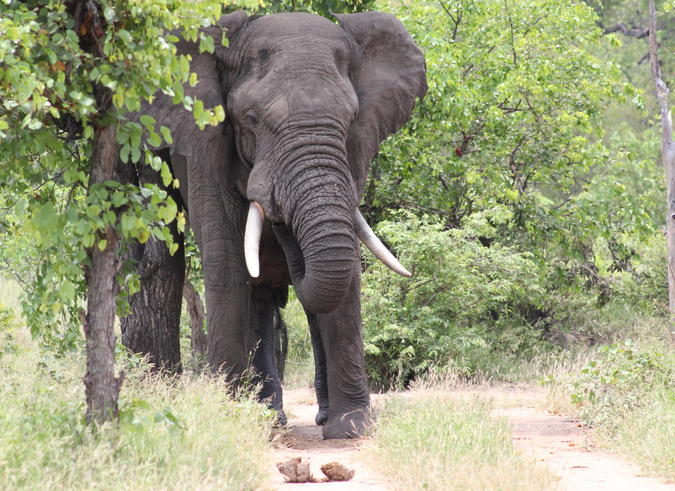
Written and photos by Mike Cadman
Neglected and inadequate fencing has cost nine elephants their lives at the embattled Songimvelo Nature Reserve (SNR) in Mpumalanga, South Africa, after authorities shot two groups of the animals in March and April this year because they had left the reserve and were feeding in communal lands nearby.
Mpumalanga Tourism and Parks Agency (MTPA) says that their staff regularly try to repair the fences but admit the fences are still “inadequate” to control elephants. Local residents and visitors to the area say the boundary fence has been in state of disrepair for years and remains so.
“That fence is down, down, down, it is rotten, and in some places even a human can walk through it,” Douglas Nkosi, the chairman of the Songimvelo Community Property Association said. “The elephants go where they want to and it is easy to understand that farmers get angry when they lose their entire crop in one night.”
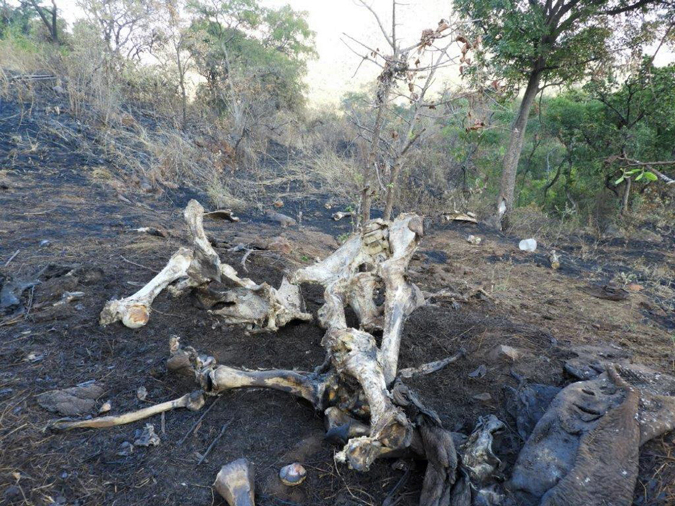
Some the remains of the elephants that were shot © Mike Cadman
MTPA said that the last elephant census at SNR was done in 2014 (estimated 105 elephants in the 49,000 hectare reserve, the largest provincial park in Mpumalanga), but they estimate that the population has now grown to 138.
MTPA said that the decision to shoot the elephants was taken after efforts to encourage them to return to the park had failed. The authorities kept the tusks, and the meat was donated to local residents.
“The MTPA is constantly faced with challenges of elephants breaking fences at night and crossing the main road from Badplaas to Msauli village. This has posed serious risk to pedestrians, infrastructure and road traffic in the area and also affected the crops on the farms opposite the road from the reserve,” the MTPA said. “When elephants breach the fences, MTPA staff are dispatched to fix the fences. They are, however, not in an adequate condition to contain the elephants”.
Wildlife enthusiasts Marie Jean Butler and Dirk Venter said they have visited the Songimvelo area six times since 2017, and that large sections of the perimeter fence had been in a state of disrepair on every occasion.
“We are very disappointed that such consistent neglect could have cost these elephants their lives,” Butler said. “There is so much that could be done in the area and this reserve should be a tourism gem.”
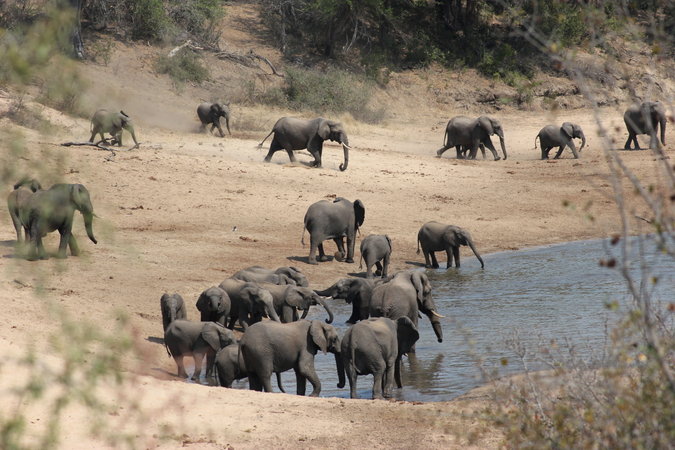
Elephant family herd at a waterhole in a reserve in South Africa
© Mike Cadman
The MTPA said that local residents had become so irritated with losing crops to the elephants that “over time, the community actions and blockading of roads to the reserve became a risk to tourists”.
Nkosi said that while residents had staged protests demanding that something be done about the poor state of the fences, they were also protesting due to frustrations related to land claims, the failure by authorities to deliver on tourism development plans and service delivery issues.
“People are very unhappy, but it is all part of the problem that the authorities have not kept their promises about running Songimvelo properly, developing tourism opportunities or creating jobs,” Nkosi said. “When the officials present their integrated management plan everyone loves it but then nothing happens. Our pleas for development falls on deaf ears.”
Various unsettled land claims have been made against parts of the reserve, large numbers of cattle graze within the reserve (in some areas by agreement with local communities), and subsistence poaching is common. In 2010 it was reported that most of the rhinos in SNR had been killed by poachers.
Will Pieters, a tourism specialist in Songimvelo and in various other parts of South Africa said that while the SNR had experienced serious difficulties there was still much that can be achieved.
“There is enormous goodwill amongst many of the role players here,” Pieters, a director of the Rakanda Goodwill Foundation, which works in the area, said. “With sufficient funding and skills development many of the tourism development goals can be achieved.”
“The fencing issue is one of many, and the shooting of the elephants is something that was avoidable but we believe that things can be changed for the better.”
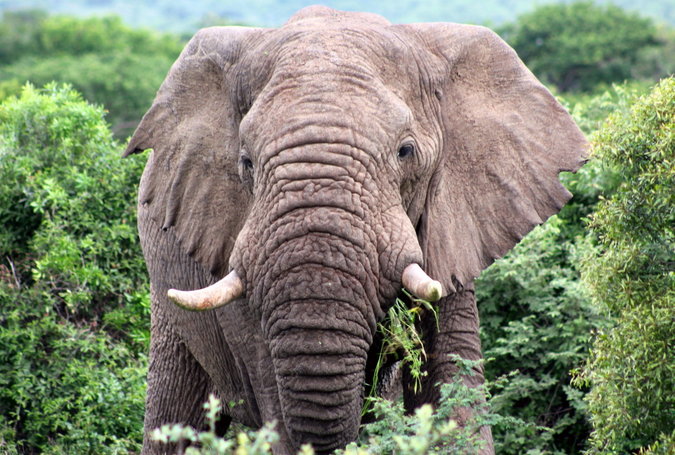
Elephant in a reserve in South Africa
© Mike Cadman
ABOUT MIKE CADMAN
Mike Cadman has worked as a print journalist and television news producer for various international media organisations for more than 37 years. He has also compiled reports for a wide range of environmental and wildlife NGOs. He is the author of five books on a variety of subjects including wildlife rehabilitation, the modern history of South Africa’s Mapungubwe National Park (co-authored with Dr Mark Berry) and travel. He has also written a compendium of education books aimed at 11-12 year old children who do not have easy access to the internet.
Posted on 12 August, 2019 by Guest Blogger in Animal Encounters, Opinion Editorial, Wildlife and the Opinion Editorial post series.

Written and photos by Mike Cadman
Neglected and inadequate fencing has cost nine elephants their lives at the embattled Songimvelo Nature Reserve (SNR) in Mpumalanga, South Africa, after authorities shot two groups of the animals in March and April this year because they had left the reserve and were feeding in communal lands nearby.
Mpumalanga Tourism and Parks Agency (MTPA) says that their staff regularly try to repair the fences but admit the fences are still “inadequate” to control elephants. Local residents and visitors to the area say the boundary fence has been in state of disrepair for years and remains so.
“That fence is down, down, down, it is rotten, and in some places even a human can walk through it,” Douglas Nkosi, the chairman of the Songimvelo Community Property Association said. “The elephants go where they want to and it is easy to understand that farmers get angry when they lose their entire crop in one night.”

Some the remains of the elephants that were shot © Mike Cadman
MTPA said that the last elephant census at SNR was done in 2014 (estimated 105 elephants in the 49,000 hectare reserve, the largest provincial park in Mpumalanga), but they estimate that the population has now grown to 138.
MTPA said that the decision to shoot the elephants was taken after efforts to encourage them to return to the park had failed. The authorities kept the tusks, and the meat was donated to local residents.
“The MTPA is constantly faced with challenges of elephants breaking fences at night and crossing the main road from Badplaas to Msauli village. This has posed serious risk to pedestrians, infrastructure and road traffic in the area and also affected the crops on the farms opposite the road from the reserve,” the MTPA said. “When elephants breach the fences, MTPA staff are dispatched to fix the fences. They are, however, not in an adequate condition to contain the elephants”.
Wildlife enthusiasts Marie Jean Butler and Dirk Venter said they have visited the Songimvelo area six times since 2017, and that large sections of the perimeter fence had been in a state of disrepair on every occasion.
“We are very disappointed that such consistent neglect could have cost these elephants their lives,” Butler said. “There is so much that could be done in the area and this reserve should be a tourism gem.”

Elephant family herd at a waterhole in a reserve in South Africa
© Mike Cadman
The MTPA said that local residents had become so irritated with losing crops to the elephants that “over time, the community actions and blockading of roads to the reserve became a risk to tourists”.
Nkosi said that while residents had staged protests demanding that something be done about the poor state of the fences, they were also protesting due to frustrations related to land claims, the failure by authorities to deliver on tourism development plans and service delivery issues.
“People are very unhappy, but it is all part of the problem that the authorities have not kept their promises about running Songimvelo properly, developing tourism opportunities or creating jobs,” Nkosi said. “When the officials present their integrated management plan everyone loves it but then nothing happens. Our pleas for development falls on deaf ears.”
Various unsettled land claims have been made against parts of the reserve, large numbers of cattle graze within the reserve (in some areas by agreement with local communities), and subsistence poaching is common. In 2010 it was reported that most of the rhinos in SNR had been killed by poachers.
Will Pieters, a tourism specialist in Songimvelo and in various other parts of South Africa said that while the SNR had experienced serious difficulties there was still much that can be achieved.
“There is enormous goodwill amongst many of the role players here,” Pieters, a director of the Rakanda Goodwill Foundation, which works in the area, said. “With sufficient funding and skills development many of the tourism development goals can be achieved.”
“The fencing issue is one of many, and the shooting of the elephants is something that was avoidable but we believe that things can be changed for the better.”

Elephant in a reserve in South Africa
© Mike Cadman
ABOUT MIKE CADMAN
Mike Cadman has worked as a print journalist and television news producer for various international media organisations for more than 37 years. He has also compiled reports for a wide range of environmental and wildlife NGOs. He is the author of five books on a variety of subjects including wildlife rehabilitation, the modern history of South Africa’s Mapungubwe National Park (co-authored with Dr Mark Berry) and travel. He has also written a compendium of education books aimed at 11-12 year old children who do not have easy access to the internet.
"Education is the most powerful weapon which you can use to change the world." Nelson Mandela
The desire for equality must never exceed the demands of knowledge
The desire for equality must never exceed the demands of knowledge
- Lisbeth
- Site Admin
- Posts: 66000
- Joined: Sat May 19, 2012 12:31 pm
- Country: Switzerland
- Location: Lugano
- Contact:
Re: Elephant Management and Poaching in South Africa
The National Norms and Standard for the Management of Elephants in South Africa 2019
BY DEPARTMENT OF ENVIRONMENTAL AFFAIRS - 2019 - GOVT. NOTICE.
Government notice of norms and standards for the management of Elephants in South Africa.
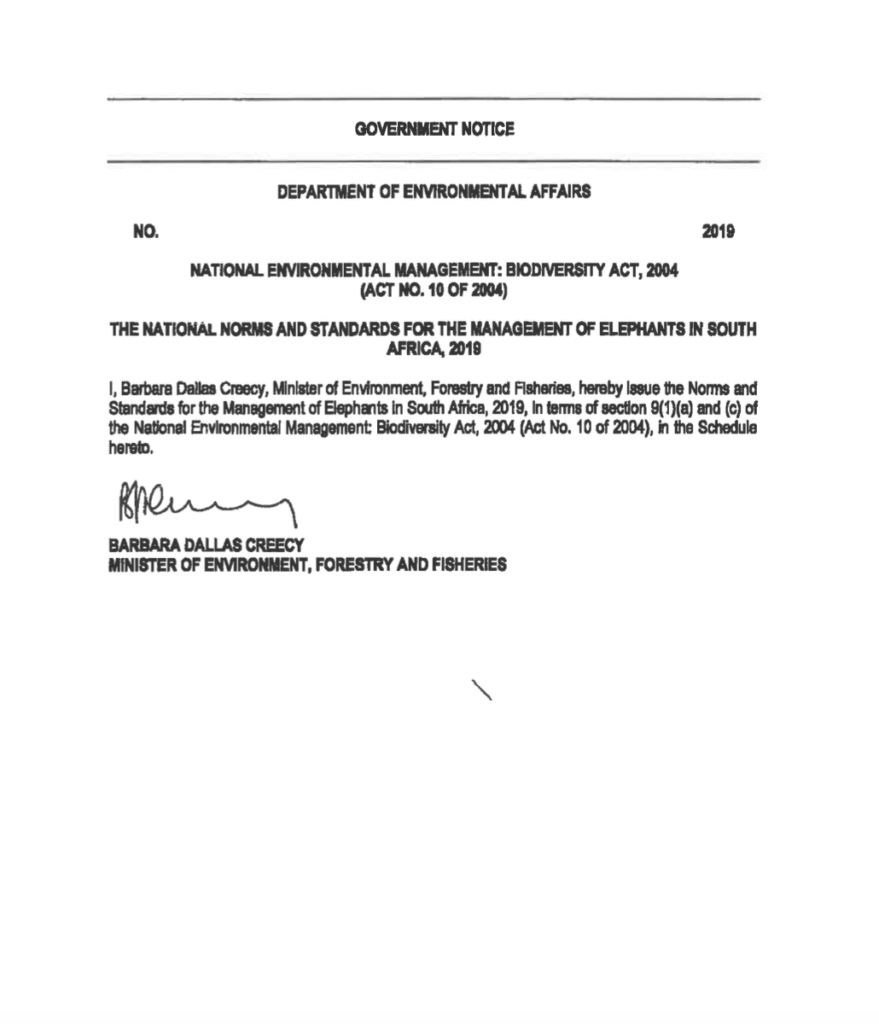
Click on the title in order to read it all.
BY DEPARTMENT OF ENVIRONMENTAL AFFAIRS - 2019 - GOVT. NOTICE.
Government notice of norms and standards for the management of Elephants in South Africa.

Click on the title in order to read it all.
"Education is the most powerful weapon which you can use to change the world." Nelson Mandela
The desire for equality must never exceed the demands of knowledge
The desire for equality must never exceed the demands of knowledge
- Lisbeth
- Site Admin
- Posts: 66000
- Joined: Sat May 19, 2012 12:31 pm
- Country: Switzerland
- Location: Lugano
- Contact:
Re: Elephant Management and Poaching in South Africa

Norms and Standards for Management of Elephants in South Africa: Department briefing; Committee report on List of Threatened or Protected Terrestrial and Freshwater Species; with Minister
BY CHAIRPERSON: MS T MODISE (ANC, NORTH WEST) - 14TH JULY 2020 - PMG
The Committee met to be briefed by the Department of Environment, Forestry and Fisheries on the norms and standards (N&S) that had been developed in line with section 9 of the National Environmental Management: Biodiversity Act (NEMBA), which made specific provisions that would ensure the proper management of elephants in South Africa. They were also explicit on the number of areas that were deemed necessary for restrictions or prohibition in the management of elephants. The Department wanted to ensure the long-term survival of elephants in the ecosystems in which they lived in South Africa and other countries, and also to ensure that the ecological integrity of ecosystems was taken care of in the context of managing elephants. ./..
Click on the title to read it all.
"Education is the most powerful weapon which you can use to change the world." Nelson Mandela
The desire for equality must never exceed the demands of knowledge
The desire for equality must never exceed the demands of knowledge
-
Klipspringer
- Global Moderator
- Posts: 5858
- Joined: Sat Sep 14, 2013 12:34 pm
- Country: Germany
- Contact:
Re: Elephant Management and Poaching in South Africa
https://www.algoafm.co.za/domestic/trio ... k-arrested
Trio who tried to sell an elephant tusk arrested
06 Aug 2020
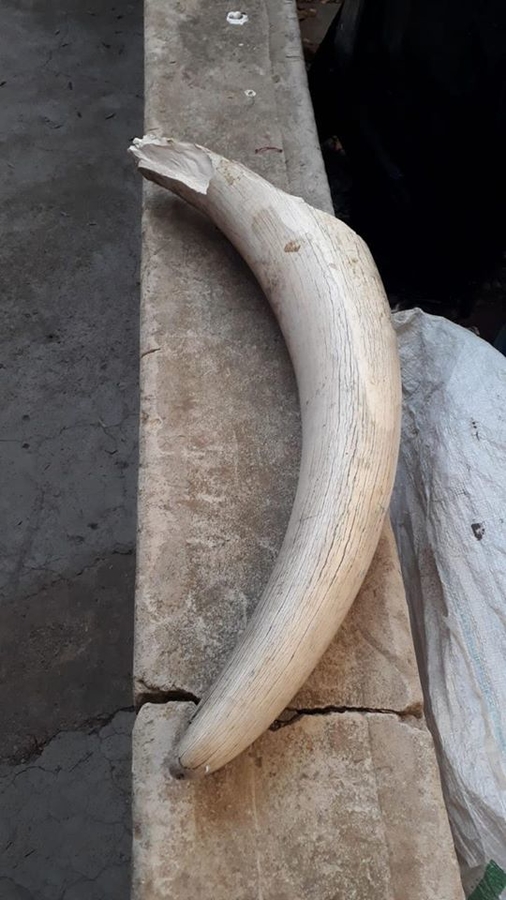
The elephant tusk confiscated by the Hawks
SAPS
The Hawks Wildlife Trafficking team in Gauteng have arrested three suspects who were found in the possession of an elephant tusk earlier this week.
Spokesperson, Colonel Katlego Mogale, says the arrest followed after a sting operation in which the men were looking for a customer to buy the tusk in Bramley, in Johannesburg on Tuesday.
The trio is believed to have priced the tusk at R400 000.
The team, who was joined by the National Intervention Unit, however, managed to quickly detain the men aged 29, 35 and 52-years-old.
They made a brief appearance at the Wynberg Magistrates Court on Thursday, where they faced charges of contravening the National Environmental Management Biodiversity Act
Their case has been postponed until next Friday, for confirmation of their compliance with the Immigration Act and for the appointment of their legal representatives.
Trio who tried to sell an elephant tusk arrested
06 Aug 2020

The elephant tusk confiscated by the Hawks
SAPS
The Hawks Wildlife Trafficking team in Gauteng have arrested three suspects who were found in the possession of an elephant tusk earlier this week.
Spokesperson, Colonel Katlego Mogale, says the arrest followed after a sting operation in which the men were looking for a customer to buy the tusk in Bramley, in Johannesburg on Tuesday.
The trio is believed to have priced the tusk at R400 000.
The team, who was joined by the National Intervention Unit, however, managed to quickly detain the men aged 29, 35 and 52-years-old.
They made a brief appearance at the Wynberg Magistrates Court on Thursday, where they faced charges of contravening the National Environmental Management Biodiversity Act
Their case has been postponed until next Friday, for confirmation of their compliance with the Immigration Act and for the appointment of their legal representatives.
- Lisbeth
- Site Admin
- Posts: 66000
- Joined: Sat May 19, 2012 12:31 pm
- Country: Switzerland
- Location: Lugano
- Contact:
Re: Elephant Management and Poaching in South Africa
Dabblers!
"Education is the most powerful weapon which you can use to change the world." Nelson Mandela
The desire for equality must never exceed the demands of knowledge
The desire for equality must never exceed the demands of knowledge
- Peter Betts
- Posts: 3080
- Joined: Fri Jun 01, 2012 9:28 am
- Country: RSA
- Contact:
Re: Elephant Management and Poaching in South Africa
Tyhat tusk was broken off naturally and would have been a stolen pick up ..wasnt poached and cut out
- Lisbeth
- Site Admin
- Posts: 66000
- Joined: Sat May 19, 2012 12:31 pm
- Country: Switzerland
- Location: Lugano
- Contact:
Re: Elephant Management and Poaching in South Africa
Looks like a piece of wood washed up from the sea 
"Education is the most powerful weapon which you can use to change the world." Nelson Mandela
The desire for equality must never exceed the demands of knowledge
The desire for equality must never exceed the demands of knowledge
- Lisbeth
- Site Admin
- Posts: 66000
- Joined: Sat May 19, 2012 12:31 pm
- Country: Switzerland
- Location: Lugano
- Contact:
Re: Elephant Management and Poaching in South Africa
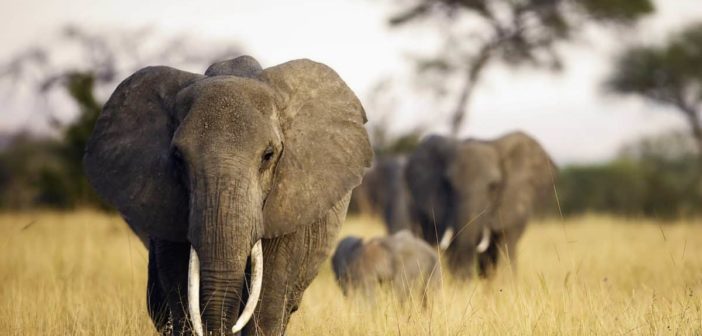
Elephants are still in trouble on World Elephant Day
BY IGA MOTYLSKA - 12TH AUGUST 2020 - THE SOUTH AFRICAN
World Elephant Day: Africa is home to around 415,000 African elephants – a sobering 30% drop in the last decade and down from 10 million a century ago.
The continent’s pachyderms have been decimated at the hands of humans through poaching, trophy hunting, and habitat loss. Even though African elephants are classified as vulnerable to extinction by The International Union for Conservation of Nature (IUCN), certain positive policies are being ignored.
CITES (Convention on International Trade in Endangered Species) members voted against the trade in live wild-caught African elephants at COP18 in Geneva last August. Yet, six southern African countries including South Africa, did not support the resolution.
THE TREATMENT OF AFRICAN ELEPHANTS
Zimbabwe, with flagrant disregard for the resolution, exported 32 live elephants caught in Hwange National Park to Chinese zoos, a few days before the CITES agreement was implemented in November 2019. After a five-year moratorium, Botswana reintroduced elephant hunting in May 2019, with a 2020 quota of 272 elephants.
The Elephant Norms and Standards (2019), which is currently before the NCOP, regulates issues regarding elephant management, including the handling, translocation, hunting, culling and population management. As it acknowledges the sentience of elephants, it excludes the capture of wild elephants for permanent captivity, except in exceptional circumstances.
Captive elephants are trained to interact with humans through the use of bull hooks, electrical prodders, food, water and sleep deprivation, and chains and ropes that force them into unnatural positions for long periods. They are often held in inadequate enclosures without adequate food and water, bedding, shelter and living space, mud wallows and bathing pools, mental stimulation, and veterinary care.
- “African elephants spend most of their lives commuting large distances across their home ranges in search of food and water in line with seasonal changes and drivers in the landscape such as fire, people and predators. This is underpinned by their tight family bonds and social network that is not necessarily limited to familial lines,” says Audrey Delsink, Wildlife Director, Humane Society International-Africa.
- “Elephants cannot be kept in captivity under humane and healthful conditions due to their complex biological, social, physiological and psychological needs, as these cannot be replicated in a captive environment,” she continues.
As times goes on, the welfare of South Africa’s 28,000 elephants remains in the hands of the DEFF.
The DEFF is preparing a new National Elephant Plan for overall management of elephants. Yet it rejected an invitation to the 2019 Captive Elephant Indaba with local and international elephant experts, where captive elephants and policy guidelines were examined in detail. It has also failed to consider the conference’s outcomes.
Dr Marion Garaï, Chairperson: Elephant Specialist Advisory Group (ESAG) and Trustee: Elephant Reintroduction Trust (ERT), recommends the upholding of the national legislation that prohibits the capture and removal of elephants from the wild to captive settings. The DEFF should facilitate the rehabilitation of captive elephants back into free-ranging systems wherever possible, because captive elephants have no conservation value and likely suffer from compromised welfare.
- “We should strive to end all captive elephant facilities and rewild these captive elephants, as captivity does represent a lesser life for any elephant. South Africa is busy with some ground-breaking projects on rewilding. The large food and space requirements of elephants and complex social societies cannot be met in a captive situation and call for us to grant them their freedom,” added Dr Michelle Henley, CEO Elephants Alive, Co-Founder and Principal Researchers.
TROPHY HUNTING
Elephant trophy hunting takes place within the Associated Private Nature Reserves (APNR) that adjoin the Kruger National Park, where almost 50 elephants are hunted annually. Once an elephant traverses from the Kruger into these privately-owned game reserves, it is considered to be fair game for trophy hunters.
This was the case with the unethical hunting of an elephant in Mohlabetsi River within Balule Nature Reserve in December 2019, which allegedly violated the Animal Protection Act, the Elephant Norms and Standards, and the National Scientific Assessment of Elephant Management. The animal was left to suffer at the hands of an unskilled hunter, who despite at least five shots was unable to deal a shot to the brain, heart or lungs.
DEFF minister Barbara Creecy has appointed a High-Level Panel (HLP) that represents those in favour of the commercial use of South Africa’s wildlife, including elephants, but fails to represent those who support wildlife welfare in equal measure.
The NSPCA was not initially invited to partake in the HLP and was only offered a belated invitation once the preliminary draft was already submitted, which it duly rejected. However, it has made a number of recommendations in terms of elephant welfare in its submission to the HLP advisory committee on 15 June 2020. Audrey Delsink also declined appointment along with environmental lawyer, Cormac Cullinan.
There is hope yet, if the DEFF is willing to listen. Several projects across the continent are rehabilitating captive elephants into the wild. The NSPCA recommends that no new elephants are placed in captivity and that those in captivity be reintegrated into the wild.
- “The morals of society are reflected in the way it treats all beings,” concludes Professor Rudi van Aarde, Chair of the Conservation Ecology Research Unit (CERU) in the Department of Zoology and Entomology at the University of Pretoria.
Original article: https://www.thesouthafrican.com/opinion ... ant-day-2/
"Education is the most powerful weapon which you can use to change the world." Nelson Mandela
The desire for equality must never exceed the demands of knowledge
The desire for equality must never exceed the demands of knowledge
- Lisbeth
- Site Admin
- Posts: 66000
- Joined: Sat May 19, 2012 12:31 pm
- Country: Switzerland
- Location: Lugano
- Contact:
Re: Elephant Management and Poaching in South Africa
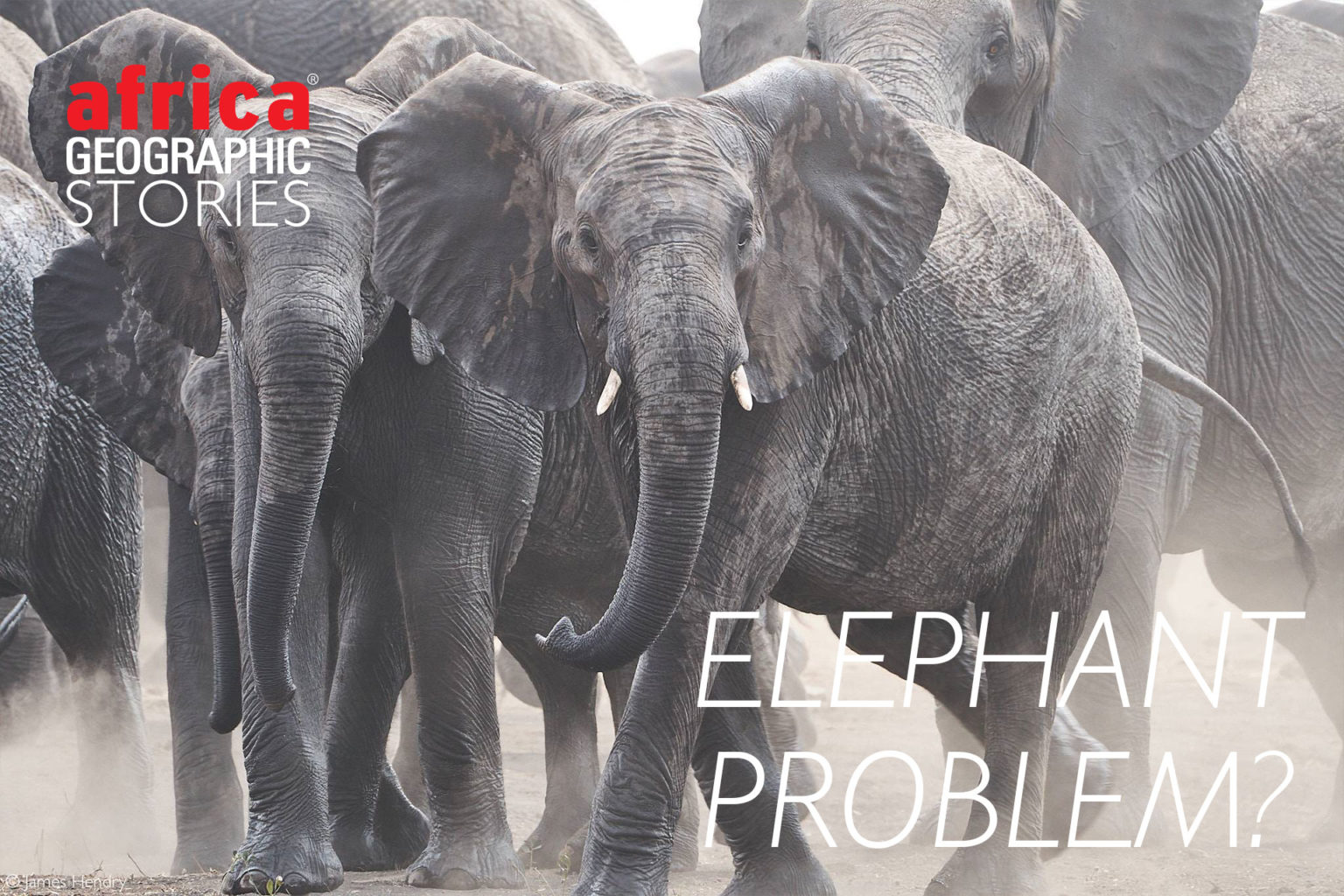
NO SIMPLE ANSWERS...

by
Team Africa Geographic
Wednesday, 21 July 2021

At a dinner party, round a campfire or in a pub, someone raises the topic of the ‘elephant problem’ in Southern Africa…
Click on the title to read the whole story...
"Education is the most powerful weapon which you can use to change the world." Nelson Mandela
The desire for equality must never exceed the demands of knowledge
The desire for equality must never exceed the demands of knowledge


